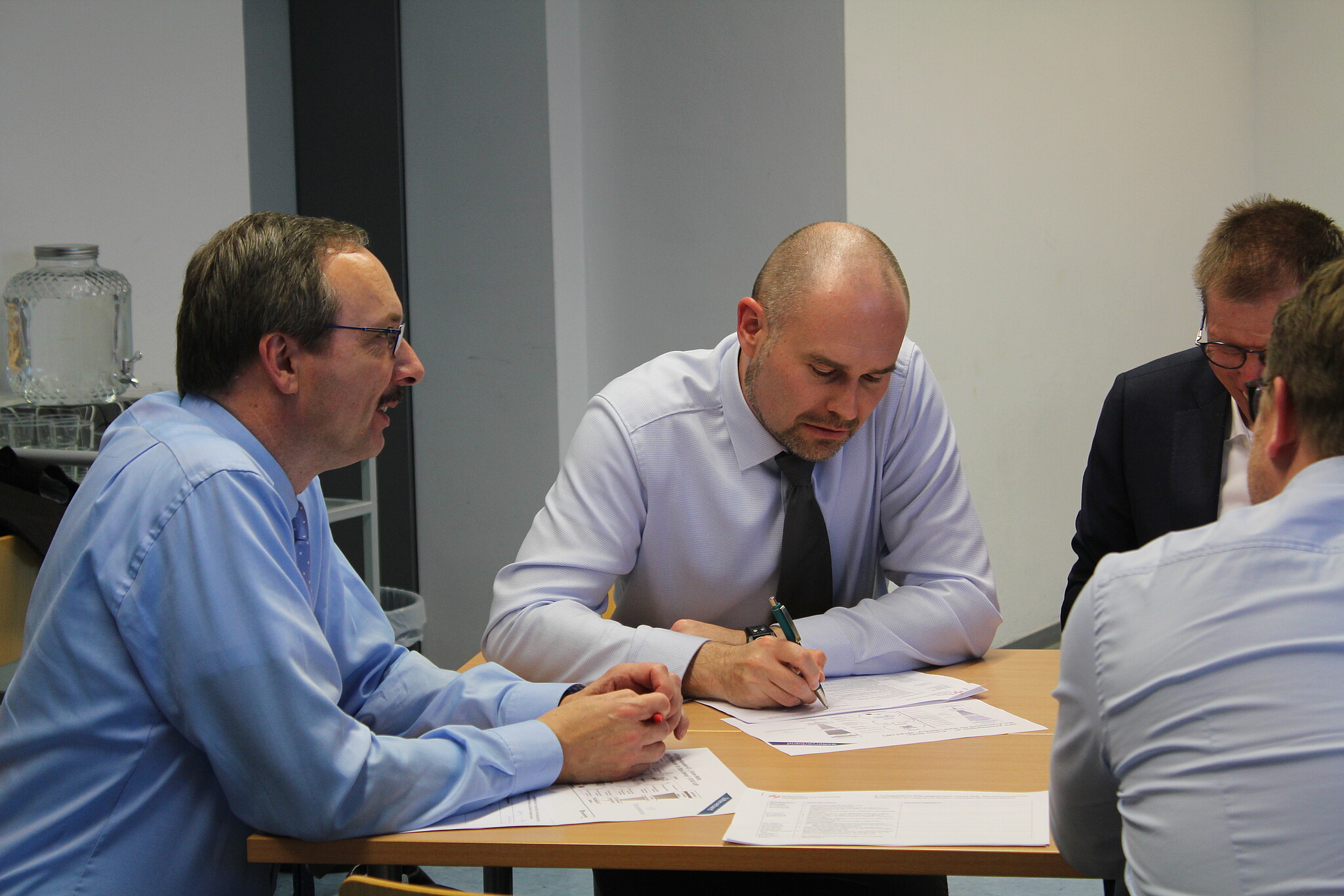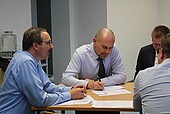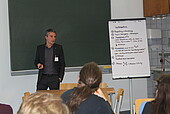The eighth Ludwigshafen Education Talks in November 2019 were dedicated to the future skills of media literacy and data literacy and brought together university lecturers, employees and researchers from all over Rhineland-Palatinate. The first part of the event provided a quick introduction to the topics: With Dr. Marco Kalz, Professor of Media Didactics at Heidelberg University of Education, and Dr. Jens Heidrich from the Fraunhofer Institute for Experimental Software Engineering IESE, two proven experts presented the current state of research on these skills. Based on the digital society, which requires digitally competent citizens - "Being digitally competent means using digital technologies in a confident and safe way for various purposes such as working, getting a job, learning, shopping online [...] " (European Commission 2019) - Kalz used several concepts for ICT and media skills to illustrate the wide range of definitions. The European Commission's Digicomp Framework 2.1 sees communication and collaboration, digital content creation, security, problem solving and information and data literacy as important aspects of media literacy. The first interfaces with data literacy are thus visible.
"Data literacy is the ability to collect, manage, evaluate and apply data in a critical way" (Ridsdale et al. 2015). - Dr. Jens Heidrich reflected on this definition in his presentation and pointed out the overlaps with information literacy or data science. Data literacy has only established itself as a concept in the German-speaking community in recent years. On the one hand, it includes a so-called 'coding component', in which students collect data similar to a quantitative research process, evaluate data and present it graphically and verbally. The decoding component focuses on working with the graphically and verbally prepared data. These results and data are interpreted by students and action is derived (for an overview, see Stifterverband / Framework for Data Literacy). Data literacy pursues two purposes: either the handling of data in the discipline with greater depth and complexity or a broad foundation of skills for responsible citizens. The qualifications offered by universities vary greatly depending on the purpose.
In the subsequent workshops, the participants discussed the integration of skills into the curricula. Professor Dr. Marco Kalz and Mathias Bandtel (modal project, Mannheim University of Applied Sciences) supported these considerations with advice and examples of good practice. Considerations for the integration of media skills into the curricula included, for example, the implementation of a central media center, the offer of an interdisciplinary cross-sectional module and the increased use of digital media in lessons and examinations (e.g. creation of videos).
In the workshop on data literacy, the participants were able to imagine incorporating the skills more stringently into existing modules and making them more visible. They saw many points of contact in the area of statistics, soft skills or for working with data sets in project seminars, particularly in business degree programs. Interdisciplinary team projects or an interdisciplinary elective module could also teach data literacy. Other ideas included lecture series or peer consultations for university lecturers to familiarize themselves with the concept, skills and teaching ideas. Open Educational Resources will provide future projects for the development of data literacy modules, which the Stifterverband is currently funding.
You can find the presentation videos here
Expert contact:
Dr. Imke Buß
Studies & Education
Tel. 0621/5203-254
imke.buss@ 8< SPAM protection, please remove >8 hwg-lu.de






